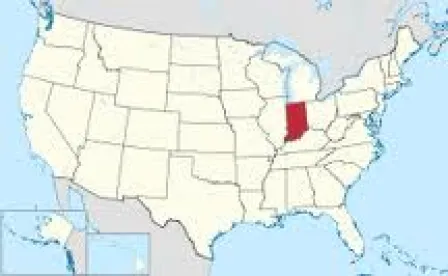It didn't take long for the nation's newest right-to-work law to come under fire from opponents. The International Union of Operating Engineers Local 150 has filed a complaint in federal court challenging Indiana's new right-to-work law on constitutional and federal preemption grounds. The complaint alleges various claims under the U.S. and Indiana Constitutions. It also alleges that certain sections of the law are preempted by the National Labor Relations Act (NLRA). The suit names Indiana Governor Mitch Daniels, Attorney General Greg Zoeller, and Labor Commissioner Lori Torres as defendants.
The lawsuit is Sweeney v. Daniels, Case No. 2:12-cv-00081, filed in the U.S. District Court for the Northern District of Indiana on Feb. 22, 2012.
The U.S. Supreme Court has not been sympathetic to Constitutional arguments in previous cases challenging state right-to-work laws, but the federal preemption issue has never been decided by the U.S. Supreme Court. See Lincoln Federal Labor Union v. Northwestern Iron & Metal Co., 335 U.S. 525 (1949). Because of this, it is not clear whether the suit will ultimately have any impact in preventing right-to-work from continuing in Indiana.
In a statement issued by the Office of the Attorney General, Zoeller said that he will defend the state in the lawsuit.
"Legal challenges are part of the process to test whether laws are constitutional," Zoeller said. "Though we respect the right of private plaintiffs to disagree with this new law, the State's position is that the Legislation is within its authority to create a new policy concerning mandatory union dues. My office's duty is to defend the laws the Legislature passes and we will do so diligently here."
Gov. Daniels signed the controversial right-to-work law on Feb. 1 after the Indiana Senate passed the legislation by a vote of 28-22. By signing the law, Indiana became the 23rd right-to-work state in the U.S. and the first in the nation's Rust Belt. The issue has received attention in other states such as Ohio, where similar measures are being considered.



 />i
/>i

